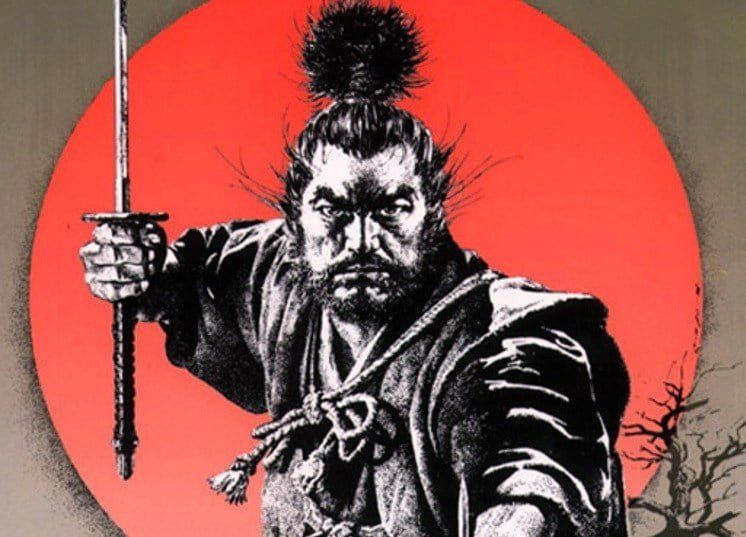VOICE and The Book of Five Rings - Execution

This is the fifth and last post in a series on the VOICE principles and the philosophy of Miyamoto Musashi as written in The Book of Five Rings. The translation of The Book of Five Rings used here was sourced from WikiQuote.
I wrote this series while working at YP.com. I’ve updated some of the language to reflect the past tense and generally make it read easier.
You can start from the beginning of the series here.
We at YP practiced the VOICE principles (Velocity, Ownership, Innovation, Collaboration, and Execution), striving to embody each of them in order to become more effective at not only our jobs, but in our personal lives.
In the 16th century, a Japanese Ronin (a lord-less samurai) named Miyamoto Musashi wrote The Book of Five Rings. In it Musashi describes his philosophy, called “The Way” of sword fighting, which is still studied today and can be applied across any discipline.
This series explains how the sword fighting principles of The Way can be generalized to each VOICE principle, leading you to becoming more productive in your life. In the previous entry, I wrote about how Musashi’s teachings relate to Collaboration. In today’s post, I’ll be covering Execution.
Execution
When we think of the word Execution, we tend to think of one of the two first definitions of the word listed by Merriam-Webster. Unless you work in criminal justice, the second definition isn’t likely to be relevant to your job. Instead, execution is broadly defined as an action, the performance of something to some end, or to do a thing. As part of VOICE, Execution means to carry out something to completion, and the dedication and efficiency required for that performance.
Weak execution is bad for everyone. It’s bad for you because you’re not getting your work done, or doing so ineffectively. It’s bad for your team because they’re not getting their goals accomplished, or the services they offer to their customers suffer. And it’s bad for your company because any service delivery issues will ultimately cause declines in revenue.
As you might imagine, Musashi has quite a bit to say about execution (both definitions).
There is no fast way of wielding the long sword. The long sword should be wielded broadly, and the companion sword closely. This is the first thing to realise. According to this Ichi school, you can win with a long weapon, and yet you can also win with a short weapon. In short, the Way of the Ichi school is the spirit of winning, whatever the weapon and whatever its size.
Here, Musashi is writing about the characteristics of the swords he wields. Their natures make them useful in specific ways, and as tools they should be handled in ways appropriate to their purposes. But the important part of this statement isn’t the recognition of the strengths and weaknesses of the swords and using them in ways appropriate to their strength. The key to this statement is what he calls “the spirit of winning”, no matter the tool and its nature.
If to “win” for Musashi is to succeed in the execution of your goal, then he makes it clear that it’s the mindset of achieving victory, or accomplishing one’s goal, is what we should seek. Neither the methods, the tools, nor the paths we take are the focus to “winning”, instead we need simply execute with single-mindedness toward that end state.
While it’s obviously relevant and necessary to consider the methods, resources, and techniques as part of execution, they should never be the focus beyond what is necessary toward executing a plan. Otherwise, you can easily fall victim to the Law of Triviality.
There is timing in the whole life of the warrior, in his thriving and declining, in his harmony and discord. Similarly, there is timing in the Way of the merchant, in the rise and fall of capital. All things entail rising and falling timing. You must be able to discern this. In strategy there are various timing considerations. From the outset you must know the applicable timing and the inapplicable timing, and from among the large and small things and the fast and slow timings find the relevant timing, first seeing the distance timing and the background timing. This is the main thing in strategy. It is especially important to know the background timing, otherwise your strategy will become uncertain.
And
You win in battles with the timing in the Void born of the timing of cunning by knowing the enemies' timing, and this using a timing which the enemy does not expect.
To focus on timing is to focus on your execution. Proper Execution relies on proper timing of the situation. For example, you name a currently large market served by technology, and I’ll show you startups that tried it years before and failed, simply because they were too early. Pets.com for pet products, webvan.com for grocery delivery, or Ask Jeeves for web searching are all examples of great ideas that mistimed the market. If your idea is too early, you won’t get a critical mass of customers, too late and you’ll struggle trying to gain market share from entrenched competitors.
The message Musashi is primarily conveying in the first quote is about awareness of timing. To be aware of your surroundings and the situation is necessary and should be obvious, but strategy goes beyond three dimensions. Just as important to your strategy for effective execution is accounting for time and timing. Don’t lose focus on the aspect of timing when planning. If your execution doesn’t consider timing, you may be wasting effort.
In the second quote, Musashi is telling us about utilizing timing to our advantage. When your competitor becomes complacent, you can time a disruptive product or feature. When your negotiation has nearly concluded, you can time the insertion of one last request to throw off the opposing party. Whatever the situation, using timing should not only be a defensive technique in your execution, but an offensive strategy to ensure the maximum benefit from your effort.
Do nothing which is of no use.
This is Musashi’s clearest instruction for Execution. Don’t waste time with frivolous activities that won’t further the execution of your plan. If it serves no purpose, you shouldn’t be pursuing it, you shouldn’t be thinking about it, and you shouldn’t be working on it.
Every decision and action in every aspect of your life should have a purpose, including the act of doing nothing. It’s perfectly acceptable to “waste time”, but only if that time isn’t truly being wasted and there’s a purpose behind it being spent that way.
For example, we take breaks throughout the day not because we want to go waste time, but to release our minds from the task at hand, allowing us to return to it refreshed and refocused. We have social work events not only because they’re fun, but because they’re an indirect approach to building camaraderie, trust, and cohesion among teams.
Everything should have a purpose, even if it isn’t obvious. If there’s no purpose toward achieving your goals, then it shouldn’t be part of your Execution.
When you take up a sword, you must feel intent on cutting the enemy. As you cut an enemy you must not change your grip, and your hands must not "cower". When you dash the enemy's sword aside, or ward it off, or force it down, you must slightly change the feeling in your thumb and forefinger. Above all, you must be intent on cutting the enemy in the way you grip the sword.
And
The primary thing when you take a sword in your hands is your intention to cut the enemy, whatever the means. Whenever you parry, hit, spring, strike or touch the enemy's cutting sword, you must cut the enemy in the same movement. It is essential to attain this. If you think only of hitting, springing, striking or touching the enemy, you will not be able actually to cut him.
And finally
Whenever you cross swords with an enemy you must not think of cutting him either strongly or weakly; just think of cutting and killing him. Be intent solely on killing the enemy. Do not try to cut strongly and, of course, do not think of cutting weakly. You should only be concerned with killing the enemy.
These three excerpts all share a single message of complete focus on execution. The focus of your intent should be your execution. Your focus on the execution shouldn’t be distracted by your methods, tools, or means. Your only focus is execution.
By focusing on your execution, you’re doing so with the knowledge that everything else will fall into place. Here are two examples of what I mean by this.
First, if our intent is misplaced, such as focusing on a personal benefit of furthering our career, our focus on the execution of our work is tainted and misguided. It becomes obvious when someone works for their own benefit. If our intent is focused on the execution of our work, however, our careers will naturally reap the benefits of being highly effective and determined.
Second, if we get caught up in the details of execution, such as focusing on what tools are used and how they’re being used in the project, we lose focus on the larger goal, causing us to stray from the path of efficient delivery. We become blind to the larger goal, caught up in the minutiae of execution, instead of keeping our eyes on the successful completion, regardless of how.
To successfully execute in every aspect of our lives, we must maintain complete focus on our goal, spending no more time or effort on any aspect than is absolutely necessary.
Conclusion
Execution is the only thing that matters in business and in your personal life. You can talk, you can plan, you can strategize, but if you can’t execute you can’t succeed. Musashi’s Way teaches us that execution should be our only focus. While it’s inevitably necessary to think of other things along the way, they should only be concentrated on if they’re relevant to the execution and for only as long as required. When we’re distracted by irrelevant tasks or a tainted intent, we aren’t truly intent on our execution. The Way maintains that absolute focus on execution is your only path to winning.
I’d love to hear from you about what you think after reading this series. Do you think being Musashi’s philosophy is a practical one? How do you use Musashi’s teachings in your work?
Want to hear about another topic? Something on your mind you want to talk about? I want to hear it!




